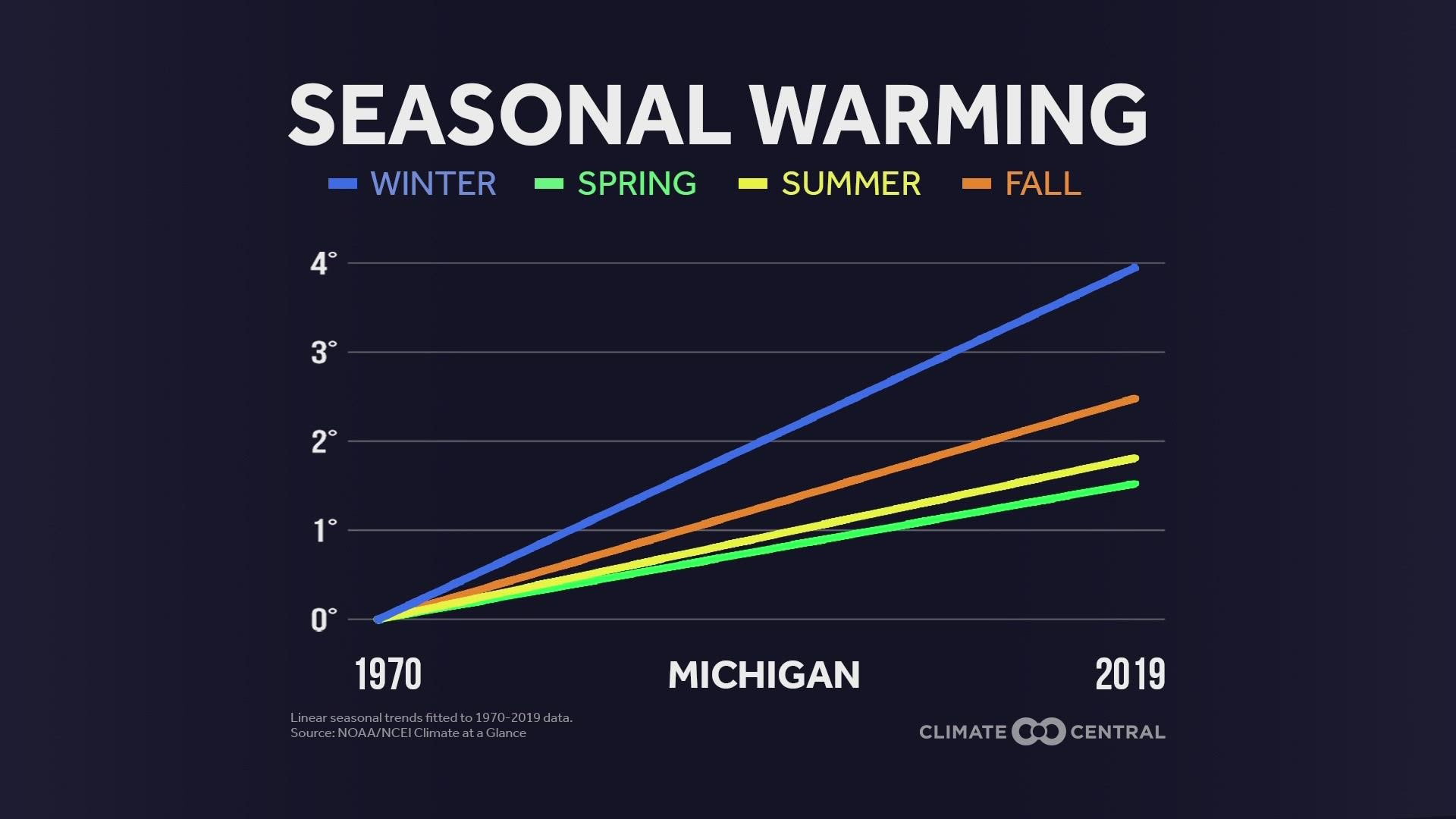GRAND RAPIDS, Mich. — We've all heard the tales of the past... the winters when our grandparents and great-grandparents had to trek miles through the cold, thick snow. Oh, and let's not forget that they had to do it uphill both ways with no shoes.
While I'm not sure about that last part, there might be some scientific truth to their winters being harsher.
Over the past 50 years, winter temperatures have increased. In fact, since 1970, winter has been the fastest-warming season for most of the United States, including here in Michigan.

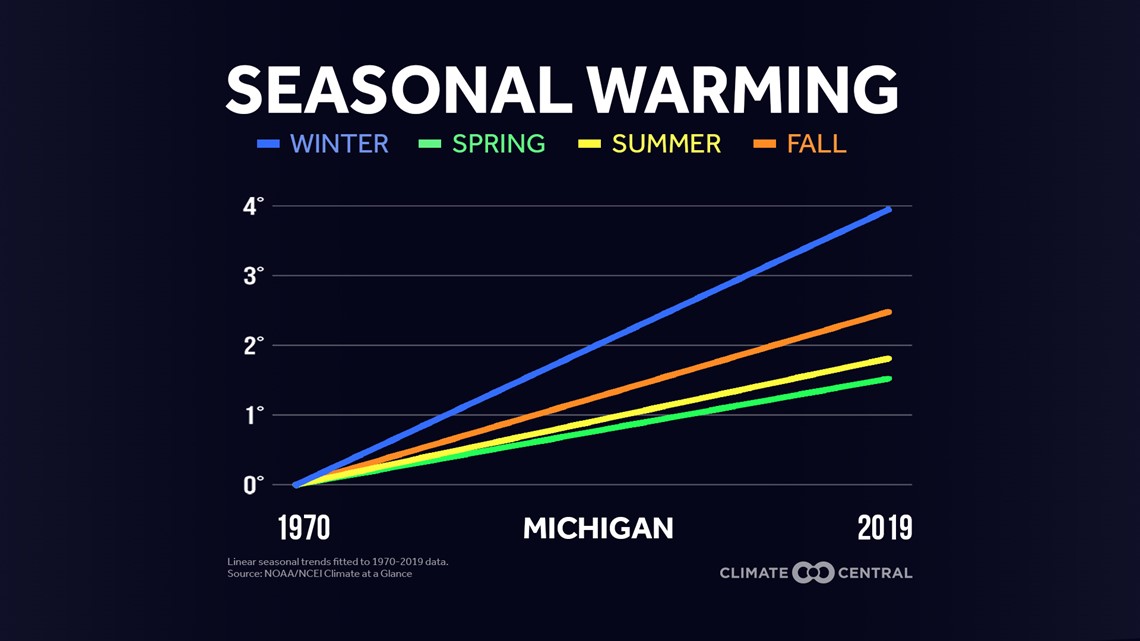
Of 246 different locations studied across the United States, the Great Lakes and Northeast regions are warming the fastest.

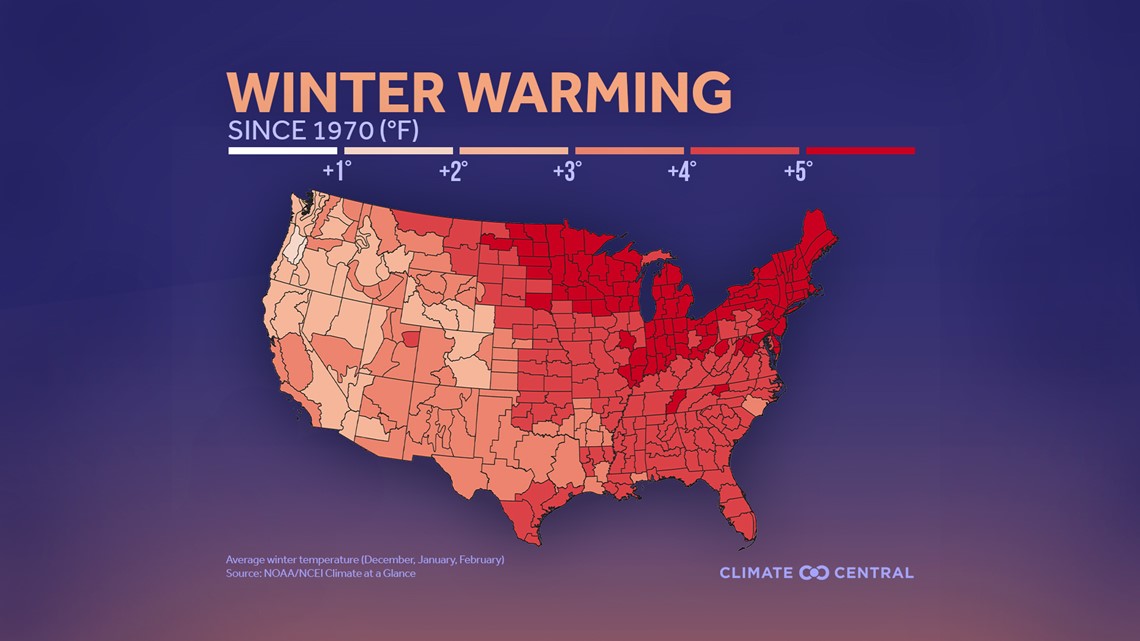
From 1970 to 2021, Grand Rapids winters have warmed 4.8°F. On average, 18 days of our winter season are spent with above-average temperatures. The scientific community is in agreement that this trend is due to our rapidly changing climate.

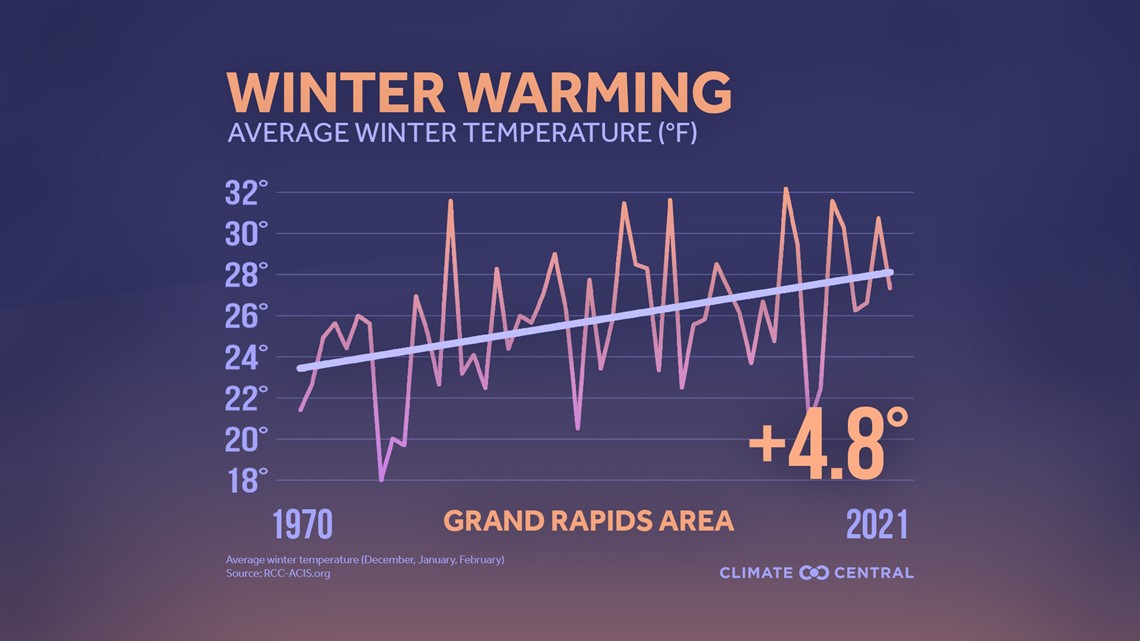

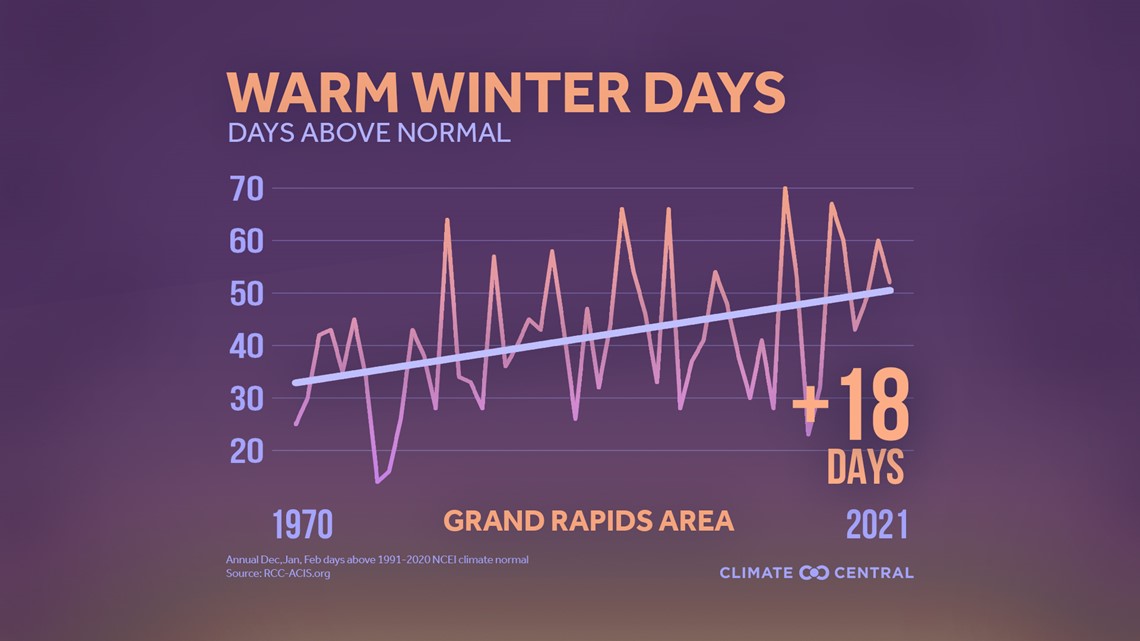
Warmer and less snowy winters may sound perfect at first, but it does come with impacts on our health and economy.
Economic: The obvious industries impacted are skiing, ice fishing, and snowmobiling — companies with a multibillion-dollar economic footprint. But, without significant snow and with too warm of temperatures, Michigan could take an economic hit.
We know our winters are not only warmer, but also becoming shorter. This is lowering our fruit yields year-to-year. Cherry, apple, and peach trees require a minimum number of 'cold hours' before they can grow fruit. Without it, some buds will never develop. With shorter winters, fruit plants are tricked into blooming early, leaving them more susceptible to frost damage.
Health: With our changing climate comes migrating pests, such as mosquitoes and ticks. We have seen an increase in both here in Michigan over the past decade due to our milder winters.
While less of a concern here in Michigan, snowpacks are a huge source of water supply for reservoirs and crops. Less snow means a greater water supply risk.
This is not to say that there won't be cold and snowy winters ever again. It's just that it won't be as cold as in the past and that winter overall is shorter.

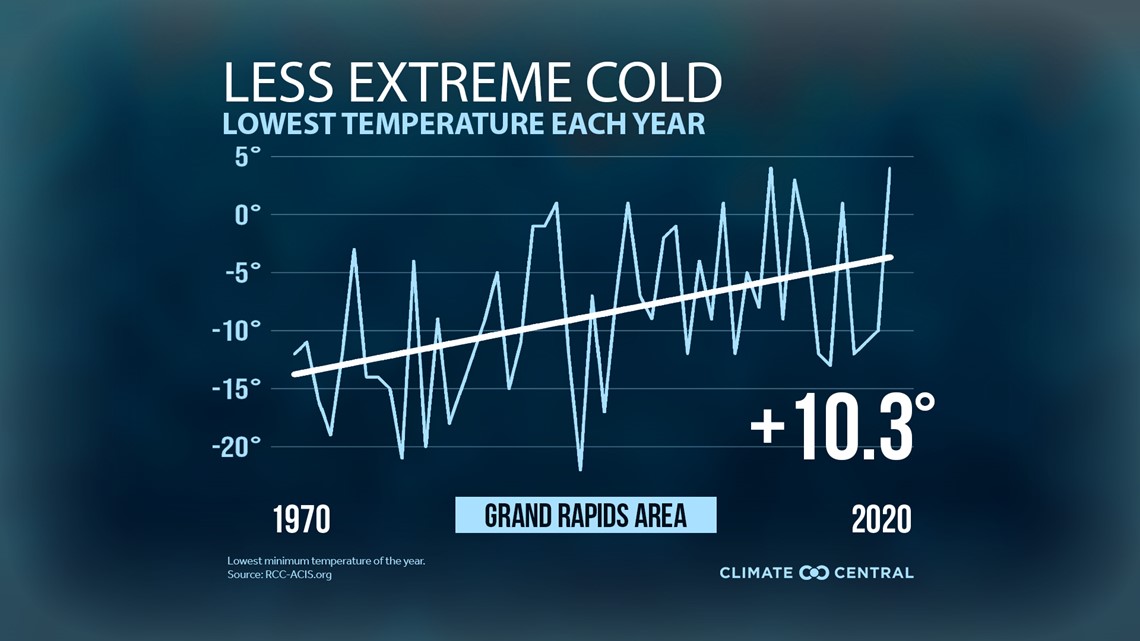

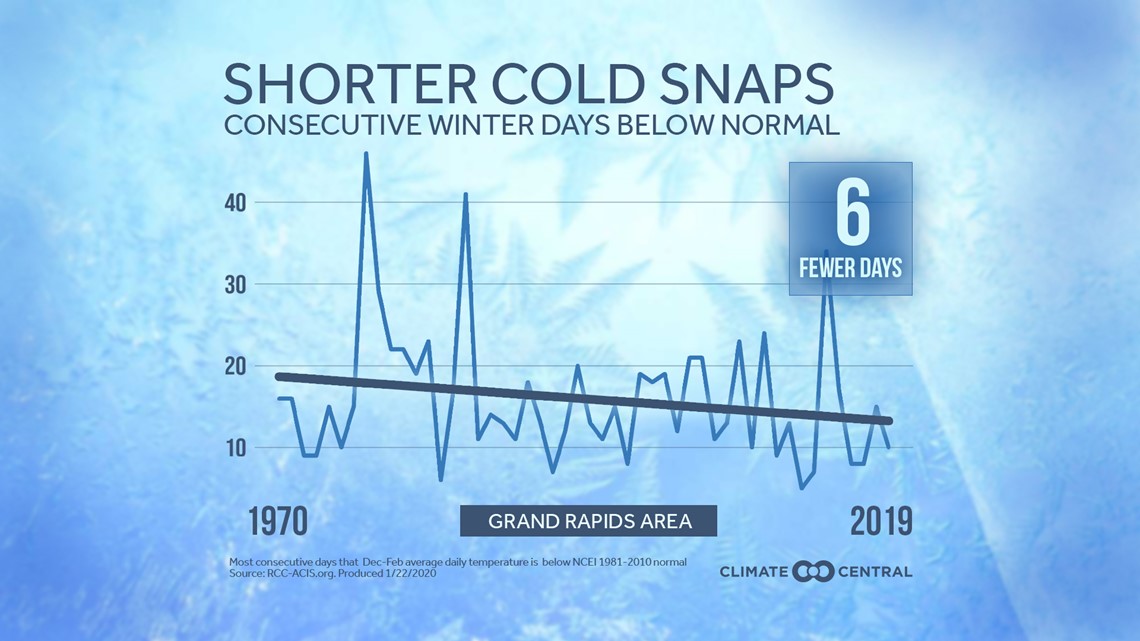
So, is the old wise tale your elder tell true? The answer is...YES!
To find out more on how we think this winter will shake out, go check out the 13 On Your Side Weather Team's winter special! Here we break down tips and tricks for this winter and how we think it will look.
►Make it easy to keep up to date with more stories like this. Download the 13 ON YOUR SIDE app now.
Have a news tip? Email news@13onyourside.com, visit our Facebook page or Twitter. Subscribe to our YouTube channel.

